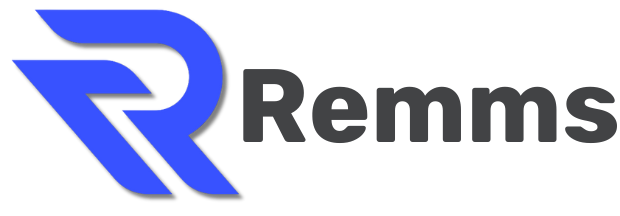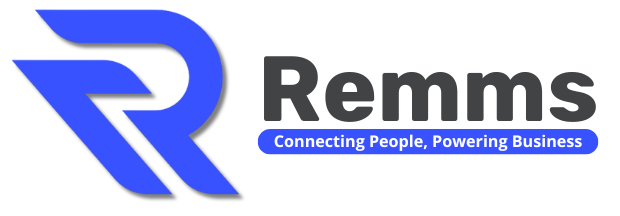
In today’s competitive job market, understanding how recruitment agency work is essential. These agencies serve as valuable intermediaries, connecting job seekers with employers.
Their role is pivotal in streamlining the hiring process for both parties. Knowing how recruitment agency work can empower candidates in their job search and help companies find the right talent efficiently.
The Landscape of Recruitment Agencies
Recruitment agencies come in various forms, catering to a diverse range of industries and job types. General recruitment agencies handle an extensive array of roles across multiple sectors, offering a broad service that appeals to a wide clientele.
On the other hand, specialized recruitment agencies focus on particular industries—such as technology, healthcare, finance, or executive positions—allowing them to develop niche expertise.
Temporary staffing agencies are another vital category, providing businesses with workers for short-term needs, which is particularly beneficial during peak seasons or special projects.
Moreover, headhunters play a critical role in the recruitment landscape, especially for senior or executive roles. They specialize in attracting passive candidates—individuals not actively seeking new employment—thus expanding the talent pool.
The Job Seeker’s Journey
For individuals seeking employment, the process with a recruitment agency typically begins with registration. This step usually involves submitting a resume and completing a profile that outlines their skills, experience, and job preferences. The agency uses this information to tailor its services to match the candidate with suitable job openings.
Once registered, candidates often undergo a consultation process where recruitment agents delve deeper into their career aspirations, skills, and job desires.
This personalized interaction allows agents to fully understand each candidate’s unique situation, ensuring that job recommendations align with their long-term goals.
To match candidates effectively, recruitment agencies leverage their knowledge of job descriptions from employers while aligning them with the candidates’ qualifications.
If a candidate fits a particular role, the agency submits their resume to the employer, sometimes providing additional assistance in tailoring the application to highlight relevant skills.
In addition to the application process, recruitment agencies play a crucial role in preparing candidates for interviews. Agents often provide targeted tips and conduct mock interviews, helping candidates to refine their presentation skills and boost their confidence.
After interviews, feedback is an essential aspect of the process. Agencies collect input from employers and communicate it to candidates, offering insights that can improve their future applications and interview readiness.
The Employer’s Perspective
From the viewpoint of employers, the relationship with recruitment agencies starts with a detailed consultation.
Employers present a job description outlining the requirements, qualifications, and desired traits that align with their company culture.
This initial meeting sets the foundation for a productive partnership, as agencies need a clear understanding of what their clients are looking for in potential candidates.
With this information, recruitment agencies embark on sourcing candidates. They implement various strategies to identify suitable candidates, including utilizing robust databases, tapping into their professional networks, and leveraging targeted advertising.
This multi-faceted approach enables agencies to reach out to both active job seekers and passive candidates who may not be actively looking but are open to new opportunities.
Once potential candidates are identified, recruitment agencies conduct thorough screenings, which may involve preliminary interviews, skills assessments, and background checks.
This filtering process is crucial, as it significantly narrows down the candidate pool while ensuring that only qualified individuals are presented to the employer.
After completing the screening, the agency compiles a shortlist of candidates to present to the employer.
Alongside the candidates’ applications, agencies often provide valuable insights derived from their direct interactions, helping employers to make informed decisions.
Coordinating interviews is another vital service offered by recruitment agencies. They facilitate communication between employers and candidates, managing schedules and logistics to ensure a smooth interviewing process.
Furthermore, many agencies assist in negotiating salary and employment terms, leveraging their expertise to strike a balance that satisfies both parties involved.
Understanding Fees and Compensation Structures
The financial aspect of engaging a recruitment agency is crucial for both job seekers and employers. Typically, agencies charge employers a placement fee, which is a percentage of the hired candidate’s annual salary. This fee generally ranges from 15% to 30%, depending on the agency and the complexity of the position being filled.
While most recruitment services are free for job seekers, some specialized agencies may charge for additional services, such as resume writing or interview coaching.
Despite this, many candidates find that the support provided by recruitment agencies significantly enhances their chances of securing interviews and landing desirable positions.
The Benefits of Engaging Recruitment Agencies
Both job seekers and employers stand to gain significantly from engaging recruitment agencies in the hiring process.
For job seekers, one of the most prominent advantages is access to a broader range of job openings, including many that are not publicly advertised.
Recruitment agencies often maintain relationships with employers who prefer to fill positions through internal channels or referrals.
Additionally, candidates benefit from the professional guidance and support provided throughout the application process.
From resume tailoring to expert interview preparation, their services save candidates considerable time and effort while increasing the likelihood of securing a favorable outcome.
For employers, the advantages are equally compelling. Recruitment agencies expand the talent pool by leveraging their extensive networks and industry knowledge.
By outsourcing the recruitment process, businesses can significantly reduce the time and resources spent on hiring, allowing them to concentrate on core business operations.
Moreover, recruitment agencies possess expertise in assessing cultural fit and technical capabilities, ensuring that employers find candidates who align with their organizational values and needs.
Navigating Trends in Recruitment
As the recruitment landscape evolves, several trends are shaping the operations of recruitment agencies. One significant trend is the integration of technology in the hiring process.
With the advent of applicant tracking systems (ATS), artificial intelligence (AI), and specialized recruitment software, agencies can streamline their operations, making it easier to track candidates and manage applications efficiently.
The rise of remote work has also transformed recruitment practices. With more companies embracing flexible work arrangements, recruitment agencies must adapt their strategies to identify candidates who are well-suited for remote positions.
This shift has necessitated changes in how agencies present opportunities to candidates and assess their readiness for remote work environments.
Another important trend is the increased focus on diversity and inclusion. Many recruitment agencies are prioritizing diverse hiring practices to aid companies in building inclusive workplaces.
By fostering a diverse workforce, organizations can cultivate creativity, drive innovation, and enhance overall business performance.
Conclusion
Understanding how recruitment agencies work can provide valuable insights for both job seekers and employers.
By acting as intermediaries, these agencies facilitate connections that lead to successful employment outcomes.
Candidates can leverage the expertise of recruitment professionals to navigate the job market effectively, while employers can benefit from an expanded talent pool and streamlined hiring processes.
Whether you are a job seeker looking for your next opportunity or an employer seeking the ideal candidate, engaging with recruitment agencies can significantly enhance your chances of achieving your goals.
As the recruitment landscape continues to evolve, staying informed about industry trends and best practices will be crucial for maximizing the benefits of these vital partnerships.

